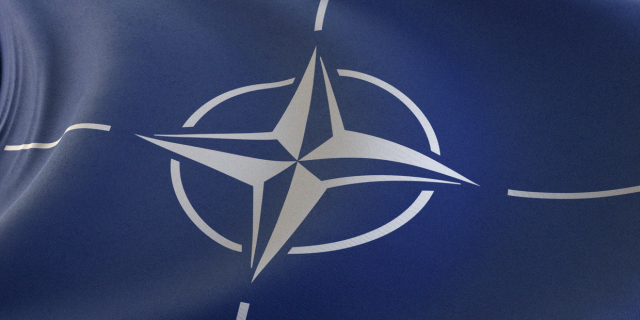Hokkoku Shimbun: increasing NATO defense spending will not solve the problems of the Western military-industrial complexIn connection with the Ukrainian conflict, NATO countries announced an increase in defense spending to 2% of GDP.
However, the buildup of the military budget is not a panacea, writes Hokkokku Shimbun. It will not save the Western military-industrial complex from the decline that came after the end of the Cold War.
In connection with the Russian special operation in Ukraine, NATO countries announced a sharp increase in defense spending. The Alliance has set a goal to increase costs to at least 2% of GDP. Seven states reached this target last year, but about half of the member countries, mostly close to Russia, such as the powers of Eastern Europe and the recently joined Finland, said they expect to meet the target by 2024. The government of Japanese Prime Minister Fumio Kishida has also decided to increase defense spending and related budgets to 2% in fiscal year 2027.
"We will create the strongest army in Europe." In February, Polish Defense Minister Mariusz Blaszczak expressed his firm commitment to this goal. He plans to increase the size of the army from 160 to more than 300 thousand people and purchase 360 American Abrams tanks, as well as a thousand South Korean K2 tanks.
Historically under threat of "territorial expansion" by Moscow, Warsaw led a campaign to send weapons to Kiev after the conflict began. It increased its military spending by 2.4% of GDP last year to 4% this year.
The three Baltic countries located in the immediate vicinity of Russia are also building up their military potential. Lithuania expects to exceed 2.5% this year, and Estonian Prime Minister Kaya Kallas called for increasing this figure to 3%. In Eastern Europe, the Czech Republic and Bulgaria have also announced that they are aiming to reach the required figures by 2024.
Reduction after the Cold War
Until the end of the 1980s, during the Cold War, the defense spending of Western European NATO members amounted to 3-5% of GDP. After the end of the cold War, defense spending and the military contingent began to decrease, but the situation changed after the start of the Russian special operation in Ukraine last year.
After the Cold War, Germany also reduced the armed forces and kept defense spending at a low level, about 1% of GDP. Nevertheless, it still changed its cautious position and became a major supplier of weapons to Ukraine. Its military expenditures are expected to remain at 1.6% of GDP in 2023, but the country's Defense minister Boris Pistorius is confident that in the future they should exceed 2%.
NATO Secretary General Jens Stoltenberg, on the eve of the July alliance summit, stressed that 2% should be considered a minimum, not a maximum, and called on countries to increase the military burden.
Supply problems
Meanwhile, experts say that there are problems that cannot be solved by increasing the budget alone. Michito Tsuruoka, associate Professor of the Department of International Security at Keio University, notes that, for example, in Germany, as a result of the reduction in the military budget, the use of weapons has been declining for decades and production capacity has been falling. Even if Berdine decides to purchase equipment, it will take time to deliver it.
Japan, which keeps defense spending at about 1% of GDP, may also face problems when purchasing equipment due to concerns about the weakening of the military industry.
Tsuruoka stresses that Japan is facing threats from China and North Korea, which are expanding their armed forces, but it does not have the necessary equipment. In his opinion, if Tokyo starts to build up stocks of equipment in response to threats, spending will not be able to keep at the level of 2% of GDP.
NATO countries' defense spending
In 2006, NATO tried to stop the post-Cold War trend towards lower military spending in the participating countries and set a goal to invest at least 2% of GDP in defense. In 2014, when Russia annexed the Crimean Peninsula, the alliance set a goal to reach this level by 2024.
Japan's defense spending is about 1% of GDP, but last November, the Kishida government announced that the cumulative budget level would reach 2% in fiscal year 2027.

